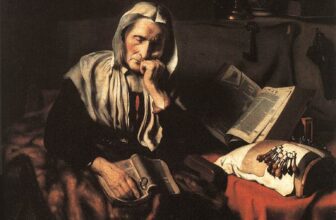
Why Napoleon Bonaparte is so famous?
Napoleon Bonaparte is a name that has become synonymous with ambition, military genius, and the rise and fall of empires. His life and career remain a source of fascination for historians, scholars, and enthusiasts worldwide. But why is Napoleon so famous? The answer lies in a combination of his military achievements, political reforms, larger-than-life persona, and the enduring impact he had on Europe and beyond. This discussion explores the multifaceted reasons behind Napoleon’s fame, delving into his military prowess, political legacy, cultural influence, and the myths that surround him.
Military Genius
One of the primary reasons for Napoleon’s fame is his extraordinary military career. Few leaders in history have demonstrated the level of strategic brilliance and battlefield innovation that he exhibited. From his early victories in the Italian Campaign to the monumental Battle of Austerlitz, Napoleon’s ability to outmaneuver and outthink his opponents was unparalleled.
Napoleon revolutionized military tactics by emphasizing speed, mobility, and the efficient use of resources. He often employed the corps system, which allowed his army to operate in a decentralized yet coordinated manner. This approach gave him a significant advantage over the more rigid and traditional armies of his time. For instance, during the Battle of Austerlitz in 1805, Napoleon’s strategic feint and exploitation of the enemy’s weaknesses resulted in a decisive victory against the combined forces of Austria and Russia.
Furthermore, Napoleon’s campaigns extended across Europe, North Africa, and the Middle East, making him a global figure. His military ventures included notable successes, such as the Italian Campaign, where he defeated Austrian forces and secured French dominance in northern Italy, and the Egyptian Campaign, which, despite being a strategic failure, contributed to his mystique as a leader who ventured beyond Europe.
Despite his eventual defeats, including the disastrous invasion of Russia in 1812 and his final loss at the Battle of Waterloo in 1815, Napoleon’s military career remains a testament to his ingenuity. His strategies are still studied in military academies worldwide, cementing his reputation as one of history’s greatest commanders.
Political Reforms and the Napoleonic Code
Napoleon’s fame is not limited to his military achievements; his impact on governance and law is equally significant. As the ruler of France, he implemented a series of reforms that reshaped the country and influenced other nations. One of his most enduring legacies is the Napoleonic Code, a comprehensive legal framework established in 1804.
The Napoleonic Code simplified and codified French law, emphasizing principles such as equality before the law, property rights, and the secularization of legal processes. It replaced the patchwork of feudal laws and customs that had existed in France, creating a unified legal system. The code’s influence extended far beyond France, serving as a model for legal systems in countries across Europe and Latin America.
Napoleon also centralized the French government, established the Bank of France, and reformed the education system to prioritize merit and accessibility. His administrative innovations laid the groundwork for the modern French state and inspired similar reforms in other nations.
However, Napoleon’s political legacy is complex. While he championed some Enlightenment ideals, such as meritocracy and secular governance, he also curtailed individual freedoms by censoring the press, suppressing dissent, and declaring himself Emperor in 1804. This duality adds to the intrigue surrounding his persona and fuels debates about his true intentions and impact.
Charismatic Leadership and Propaganda
Napoleon’s fame is also attributable to his charismatic personality and skillful use of propaganda. He cultivated an image of himself as a heroic and almost mythical figure, which resonated with both his contemporaries and future generations. His speeches, proclamations, and personal interactions conveyed confidence, determination, and a sense of destiny.
Napoleon’s understanding of the power of imagery and narrative was evident in his commissioning of grand paintings, statues, and monuments that glorified his achievements. Artists such as Jacques-Louis David immortalized him in iconic works like Napoleon Crossing the Alps. These visual representations reinforced his legend and contributed to his enduring fame.
Moreover, Napoleon’s ability to connect with his troops was a key factor in his success. He often shared in their hardships, addressing them directly and inspiring loyalty and admiration. His soldiers, known as the Grande Armée, were fiercely devoted to him, and their willingness to endure immense hardships for his cause further enhanced his reputation.
Cultural and Historical Impact
The Napoleonic era marked a transformative period in European history, and Napoleon’s influence extended far beyond his lifetime. His conquests and reforms reshaped the political map of Europe, dismantling old feudal structures and spreading the ideals of the French Revolution. Although his empire ultimately collapsed, the changes he initiated had lasting effects.
The Congress of Vienna (1814–1815), which sought to restore stability in Europe after Napoleon’s defeat, was directly influenced by his actions. The redrawing of borders and the establishment of a balance of power among European nations were attempts to prevent the emergence of another figure like Napoleon.
Napoleon’s legacy also inspired nationalist movements across Europe. His ability to rally people around a common cause and his emphasis on meritocracy resonated with those seeking independence and reform. Leaders such as Simón Bolívar in South America drew inspiration from Napoleon’s example as they fought for liberation and self-determination.
The Myth and the Man
Part of Napoleon’s fame can be attributed to the myths and legends that have grown around him. From his supposed short stature (a misconception stemming from differences in French and British measurement systems) to his portrayal as a tragic hero, Napoleon’s life story has been romanticized and reimagined in countless ways.
Writers, artists, and filmmakers have contributed to the mythos surrounding Napoleon. Historical novels like Leo Tolstoy’s War and Peace and biographies such as Andrew Roberts’ Napoleon: A Life explore his complexities and contradictions. Films and television series often depict him as a larger-than-life character, emphasizing his ambition, charisma, and dramatic rise and fall.
The duality of Napoleon’s character—as both a revolutionary hero and a power-hungry autocrat—continues to captivate audiences. His story serves as a cautionary tale about the allure of absolute power and the fragility of human ambition.
Controversies and Criticisms
Despite his fame, Napoleon remains a polarizing figure. Critics argue that his wars caused immense suffering and loss of life, with millions of soldiers and civilians perishing in his campaigns. His decision to invade Russia, for instance, resulted in catastrophic losses for the Grande Armée and devastated vast regions.
Additionally, Napoleon’s authoritarian rule and self-coronation as Emperor are seen by some as betrayals of the democratic ideals of the French Revolution. His reintroduction of slavery in French colonies in 1802, after it had been abolished during the Revolution, is another stain on his legacy.
These controversies add depth to discussions about Napoleon, highlighting the complexity of his character and the multifaceted nature of his fame.
Napoleon Bonaparte’s fame is a product of his extraordinary achievements, enduring legacy, and the myths that surround him. As a military genius, he redefined the art of warfare. As a ruler, he implemented reforms that reshaped France and influenced the world. His charismatic leadership and skillful use of propaganda ensured his place in the annals of history.
However, Napoleon’s fame is not without controversy. His wars caused immense suffering, and his authoritarian tendencies raise questions about his commitment to the ideals of liberty and equality. This duality makes him a compelling and enigmatic figure whose life and legacy continue to spark debate and fascination.
In the end, Napoleon’s fame endures because he was more than a man; he was a phenomenon. His story is a reminder of the heights to which human ambition can soar and the depths to which it can fall. It is this blend of triumph and tragedy that ensures Napoleon’s place in the collective memory of humanity.




